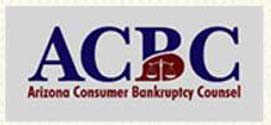
Are you contemplating bankruptcy as a means to get out from your debt? You are most likely are familiar with the terms “Chapter 7 Bankruptcy” and “Chapter 13 Bankruptcy” but do you know the main differences between the two, as well as which type of bankruptcy is best for your unique situation? Here is a chart below which compares the two types of bankruptcies, which may help you decide which one is best for you.

When you are considering bankruptcy, the choices can be overwhelming. A simple Google search can provide an endless set of results. So, how do you know which bankruptcy attorneys are worth contacting? The following infographic takes a look at this in more detail.

I live on social security income. Can a creditor garnish my checking account? Social security income is exempt from the reach of creditors. That is, a creditor cannot garnish social security income. A person receiving only social security income is judgment proof. Such a person does not need to file for bankruptcy, because the creditor does not have a right to any of the social security income.

I am married. Can I file without my husband? In a community property estate like Arizona, all assets and debts incurred during the course of the marriage “partnership” are considered community property. The exceptions are property received and debts incurred before marriage or after divorce, or property received through inheritance, whether it is received before, during, or after marriage.

Is it better to file for bankruptcy before or after divorce? If a couple is considering divorce, it is generally better to file for bankruptcy before getting a divorce. In this way, all debts incurred during the course of the marriage are discharged as community debts.

I am behind on my child support. Can filing bankruptcy help me? It depends on whether a Debtor files a Chapter 7 bankruptcy or a Chapter 13 bankruptcy. There are subtle differences.








